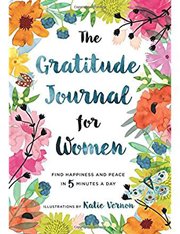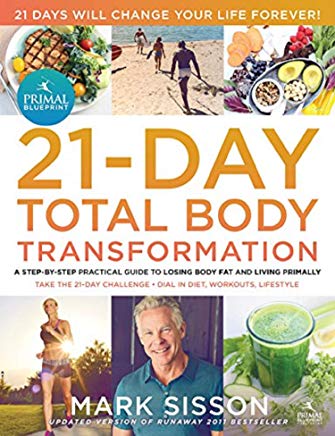Ways For Women To Prevent Alzheimer's Disease
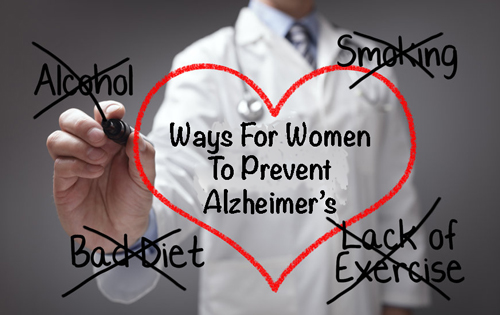
Are there ways for women to prevent Alzheimer's disease?
Alzheimer's is fatal. Sadly, women are 2 times as likely to contract it, as they are to develop breast cancer. Of the 6 million people suffering from this insidious disease in the United States, over 66% of them are women.
Even more sadly, Alzheimer's is a disease for which there is no treatment, and no cure.
Sure, there are drugs given to patients, but many times they do not work, and alarmingly, they make victims more predisposed to even more rapid brain deterioration.
Here is another scary fact about Alzheimer's: It is NOT a disease of aging. Predisposition to dementia starts showing up during women's 30's and 40's.
Mitochondria damage and dysfunction due to insulin dysregulation starts appearing 10-30 years ahead of decline in cognitive functioning.
"For most forms of dementia, there is no highly effective treatment. For example, available treatments for Alzheimer’s disease may slow the deterioration a bit, but they don’t reverse the condition. In fact, for most people taking medications for dementia, it may be difficult to know if the treatment is working at all." ~ Dr Robert H Shmerling, Harvard Medical School
Women now have a choice, though. They can make significant lifestyle changes that can tremendously increase their chances of preventing cognitive decline. They can reverse insulin issues that cause brain inflammation simply by making mindful choices in diet and exercise.
No woman deserves to live out her final years suffering from a weakening and enfeebled brain, wearing an adult diaper, and burdening her family.
Women can change their health future, their brain destiny, through commitment to themselves and self-disciple.
There are now legitimate and effective ways for women to prevent Alzheimers from robbing them of their golden years.
Most Effective Ways For Women To Prevent Alzheimers:Follow A Ketogenic Diet

"Of all the organs in our body, the brain is the one most easily damaged by a poor diet." ~ Dr Lisa Mosconi - Associate Director of the Alzheimer’s Prevention Clinic at Weill Cornell Medical College
Perhaps the two most noted authorities on nutrition, as it relates to reduction in brain functioning, are Dr David Perlmutter and Dr Dale Bredesen.
Their foremost recommendation on ways for women to prevent the onset of brain deterioration? Begin following a Ketogenic diet.
Let me repeat that: The top neuroscientists recommend that you begin a low-carb, high-fat, high-fiber, Ketogenic diet to protect your brain from the destruction of Alzheimer's.
How could any prescription be more simple?
*Get sugar food completely out of your diet.
*Get processed carbohydrates out of your diet.
*Get fried foods out of your diet.
*Get (wheat) bread, spaghetti, and pasta out of your diet.
*Get industrial seed oils (Canola, soy, grapeseed, etc) out.
*Eat more good fats (butter, avocados, olive oil, nuts)
*Eat more colorful vegetables
*Eat moderate protein (fish, chicken , turkey, etc)
*Eat moderate raw seeds and nuts (NOT roasted)
*Eat moderate berries (blueberries, blackberries)
*Eat small amounts of fruit
**You must get tobacco and alcohol out of your lifestyle.
The Easiest Ketogenic Diet Plan
Donna Cheten (35) is an Emergency Room nurse in Tampa FL. She said, "I had to take a Continuing Education class, last year. Usually, those can put you to sleep.
This one just frightened the daylights out of me!
The whole subject focused on ways for women to prevent Alzheimer's disease. The two things that had me staying up the entire night reading articles on the Internet were:
#1 - Indications for Alzheimer's can be detected 10-20 years in advance, sometimes even 30 years! This means you have a shot at reversing things if you start early.
And #2, there is a huge lag time between when research is validated, and when it makes its way as a legitimate intervention with conventional medicine doctors.
Get this, the average is 17 YEARS, really its closer to over 20 YEARS. Can you believe that? Right now, we have information that can help those of us when we reach our senior years, and our doctors fail to access and present it to us.
Unbelievable!
I decided right then that I was going to implement the two changes our instructor was presenting.
I was immediately going to start a low-carb, moderate protein, high-fat plant-based diet. And I was going to stop watching TV in the evening, and take a brisk one-hour walk.
I began reading more books by female doctors/scientists that discuss how to optimize my body and brain, using new, evidenced-based research. It's truly amazing how much information these women possess when it comes to nutrition and women's brains.
It's even more scary that my own primary care doctor, nor most of the ones I work with, even have a clue about this subject.
In this past 15 months, I have lost 26 lbs. I learn more about eating natural foods every month.
I lift weights for 20 minutes three days a week. I meditate 15 minutes each morning, then go for a 30-minute walk. I still walk an hour each evening instead of watching some mind-numbing reality TV show. I actually look like an athlete, now.
I keep a Gratitude Journal, and I am working on my MA in Counseling to enhance my intellectual fitness.
At my own hospital, I have tried to discuss ways for women to prevent Alzheimer's, focusing on a Ketogenic diet and regular exercise, with many of the neurologists/neurosurgeons...and they pretty much do not want to hear it.
It makes me nuts!
There are legitimate research-based interventions that can help women RIGHT NOW, that are blown-off because of laziness in reading current journals, or just flat, rigid-thinking.
Listen, girls, if you want start taking care of your brain's destiny, you are going to have to do a lot of work on your own.
I support you in finding a female physician who practices functional medicine. Interview her to see if she follows an all-natural eating plan, and if she keeps up on nutritional and cognitive research."
SCARY FACT: Only 28% of the medical schools in the United States require their future doctors to take a basic nutrition class. Yet, if you go to veterinarian school, you will take at least two full years of classes on optimal nutrition for pets/animals!
Exercise Is One Of The Best Ways For Women To Prevent Alzheimer's

We hear so much about how exercise can help everything from losing weight to reversing Type 2 diabetes, yet only about 40% of the population in the United States do this regularly.
An amazing 20% of all people engage in ZERO exercise.
Sadly, women exercise less than men. This must change.
When you weigh the prospect of spending your final years frightened, confused, and in an adult diaper, against participating in some kind of movement everyday, it seems to be an easy decision.
Many women have shied away from exercise because they think it is all about pushing heavy barbells in a gym full of men, running untold miles before the sun comes up, or sweating in a room with blaring music while a lithe instructor dizzily shouts, "Feel the burn!"
"One of the best ways for women to prevent Alzheimer's is just buy a pair of sneakers. Going for daily walks and adding in a little resistance training is great exercise." ~ Dr David Perlmutter, neurosurgeon and author of Grain Brain
Judy Holtz (37) is a nurse in Newport OR. She said, "Two years ago, I weighed 165 lbs at a height of 5'2". I felt sluggish, fat, and ugly. My self-esteem was at it's lowest ever. I hadn't had a date in almost 3 years.
When I was in high school and college, my weight was always about 105 lbs. I was really active, both in competitive athletics and on my own. For whatever reason, once I got my RN and started working, I pretty much stopped moving. I was also eating a lot of crap food.
I knew I had to do something to lose the weight, but I was too embarrassed to go to a gym, and I was in too bad of shape to even think about something, like CrossFit.
During an inservice, one of our speakers played a video clip of a female research scientist , named Dr Lisa Mosconi. She was discussing her new book, Brain Food, and explained how eating choices and exercise played a vital role as ways for women to prevent Alzheimer's, while they were in their 30's and 40's.
All of a sudden I perked up. I mean I was focused!
My grandma and her two younger sisters died of Alzheimer's. It completely robbed them of their lives a few years after they went through menopause. I did NOT want that end-of-life for myself.
Dr Mosconi said exercise could take many forms, everything from dance lessons several times a week, or just consistently going for a good walk. It was not confined to going to a gym.
She also said, exercise alone will NOT do anything. You have to combine it with eating more cleanly if you want to both lose weight, and reduce your risk to Alzheimer's.
The next day I got up and took an hour-long morning walk. That afternoon I bought some snazzy running shoes, and I walked consistently for three weeks. I felt great. I felt more alert and stronger. But...I had only lost 2 lbs.
I couldn't believe it. 2 pounds?! I was thoroughly discouraged.
What I had failed to do was clean up my diet. I went back to the drawing board.
I found a great Ket diet plan, and went in 100%. I continued walking each morning at sunrise. At Week 3 things started feeling different. When I weighed myself after Week 4, I could not believe it.
I had lost 15 lbs! Yes, 15 lbs in just 30 days. I was down to 149 lbs, and my motivation was through the roof!
I purchased a kettlebell, and learned how to do Thrusters and Swings with it. I added 10 minutes of this (one or the other) right after I walked, for the next 4 weeks.
The result? I lost another 10 lbs, plus I had gotten stronger!
I was on fire! Here I was, 25 whole pounds lighter, AND I was reducing my chances for Alzheimer's, to boot.
I added in another 30-minute walk after my salad for dinner.
At the end of the year, I had dropped 60 pounds...yes 60 whole pound! I was back at my high school weight, but I was much stronger.
I was also thinking better. I was more motivated to learn. When I saw my primary physician, she could not believe the scores on my blood panel. I was at the optimal end on everything she tested, from thyroid to blood sugar levels.
Last year, I read the newest book by Dr Mosconi. It's called the XX Brain, and it focuses on what women can do to prevent contracting Alzheimer's, since it begins 10-20 years even before it hits.
Knowing what I've done, through clean eating and exercise, to help me keep my brain from deteriorating has given me even more confidence.
There are immediate ways for women to prevent Alzheimer's. All we have to do is commit to taking them. I am not going to be robbed of my Golden Years."
Getting Restful Sleep Is One Of The Ways
For Women To Prevent Alzheimer's Disease

Getting good, restful sleep is one of the ways for women to reduce their risk of Alzheimer's. Although this sounds simple, women actually have tougher time than men
In her book, the XX Brain, Dr Lisa Mosconi said, "Women have a harder time falling asleep, and when they do, they have a harder time staying asleep."
Dawn Hennings (42) said, "Before I started reading books and watching YouTube videos about ways for women to prevent Alzheimer's, I abused my sleep. I really did.
I'd stay up watching idiotic reality TV shows, or Hallmark Movies because my own dating life was going so wrong. I'd wake up late, have to rush, crammed crap food in for breakfast, and did nothing close to exercise because I felt tired all day.
Once I found out how much our brain chemistry, as it pertained to reducing women's risk of developing Alzheimer's, played, I immediately changed things.
Idiot TV is out. Warm showers and taking a Valerian supplement before getting in bed by 9:00pm, have made a complete change in my life.
I also now eat a Ketogenic diet and walk every morning. My total health has turned completely around in just a year. Getting a more restful and nourishing sleep was the key."
Engaging In Intellectual Fitness Is One Of The Best Ways For Women To Prevent Alzheimer's

Intellectual stimulation is one of the most prominent ways for women to reduce the risk of developing dementia. Engaging in problem-solving, learning something new, or creating something, all fit into this category of increasing cognitive fitness.
Jenny Osbourne (33) is a mental health therapist in Cannon Beach OR. She said, "As a therapist I've always been interested in brain science. In the past several years, I've been watching YouTube videos featuring Dr Lisa Mosconi.
The results from research she has been doing just takes my breath away. Her findings on nutrition to help prevent dementia, moderate aerobic exercise, and enhancing brain fitness caused me to completely pivot in my lifestyle choices.
I follow a Ketogenic diet, I walk outdoors and lift weights regularly, and I have focused hard on cognitive fitness. I have started journaling in a park several mornings a week.
Perhaps the most bizarre thing I did was purchase an online class about creating simple eBooks, and making money with them. I mean, I am so techno-dumb that I have trouble with a ballpoint pen.
However, last year, I got work making eBooks for several other clinics here in the coastal area. I'm not getting rich but making an extra $1000 per month allows me to visit a lot of state and National Parks. Plus, I feel proud I can be one of those so-called 'passive income earners'. I didn't know my brain could even function with technology!
Two other things I have been doing are reading informative, non-fiction books instead of my usual romance novels, and watching documentaries on Netflix, a few times per week, as opposed to just dialing up a movie every night.
Dr Mosconi is very firm about women's brains being under-researched, under-diagnosed, and largely overlooked when it comes to studying the onset of dementia.
She is way ahead of conventional medicine, and she presents clear-cut ways for women to prevent Alzheimer's. However, we must take it in our own hands."
Staying Hydrated Is One Of The Best Ways
To Protect Your Brain

The brain is composed of 80% water. It functions most efficiently when hydrated. For this reason, drinking more water is one of the easiest ways for women to prevent Alzheimer's.
Following a Ketogenic diet, getting restful sleep, and engaging in daily exercise do not benefit you as much when your brain is running inefficiently.
Dr Lisa Mosconi said, "With just a 2% water loss, very mild dehydration, is just enough for women to demonstrate dysfunctional neurological symptoms."
This very subtle water loss contributes to:
- fatigue
- memory lapse
- dizziness
- confusion
- reduced attention span
- difficult concentrating
- slowed processing
Elle Stevens (37) is a dermatologist in Seattle WA. She said, "I found out, from watching Dr Lisa Mosconi on a YouTube video, that it is best to drink water warm because it opens up your blood vessels, and allows you to rehydrate more quickly.
I didn't know this. I'd never heard of it in medical school.
The warm water more readily promotes the absorption of fluids and substances. Dr Mosconi puts a few drops of Lily Of The Desert Aloe Vera Juice in her water, first thing in the morning, so I have started doing it to.
It's empowering to know there are simple little things we can turn into habits to protect our brains from being ravaged by Alzheimer's 20-30 years down the road."
Taking Quality Supplements Is One Of The Ways For Women To Prevent Alzheimer's
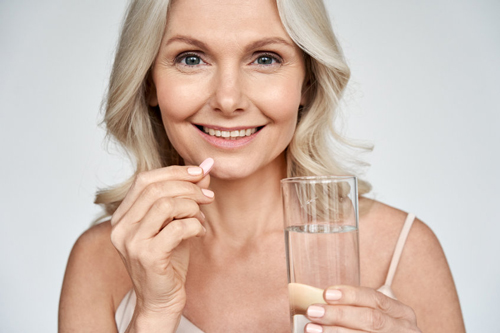
Supplements are helpful, but they are just that...supplements. They do not, and should not, be seen as a shortcut or "life hack" to eating a clean, healthy diet of natural foods.
Before beginning any kind of supplementation, make an appointment with your physician to discuss dosage and interactions with any medications you may be taking.
Probiotics - These help reduce stress, anxiety, and depression. They can influence brain behavior by helping to produce and transport neurochemicals like dopamine and serotonin.
MCT Oil - This helps prevent ands treat neurodegenerative diseases, and reduces inflammation in the brain. A spoonful daily is all you need. You can even put it in your tea, or drizzle it over your salad.
Vitamins A, B-Complex, C, D, and E - These help regulate enzymes in the brain, and help protect brain cells from dangerous free radicals. Purchase them separately, and discuss dosage with your doctor.
Tumeric - This supplement helps produce antioxidants to protect the mitochondria in your brain cells, as well helping to improve blood glucose metabolism.
Aloe Vera Juice - Provides excellent hydration properties to enhance brain functioning, and excels as an anti-inflammatory agent. Just one squirt in your water each morning is all you need.
Remember, nutrients need to come from the clean foods in a low-carb, plant-based ketogenic diet. Supplements are just complementary ways to help women prevent Alzheimer's.

Outstanding Female Doctors/Scientists: Cutting Edge Ways For Women To Prevent Alzheimer's
Dr Lori Shemek PhD
Dr Becky Gillaspy DC
Dr Sarah Hallberg DO
Dr Casey Means MD
Dr Lisa Mosconi PhD
Dr Amy Myers MD
Dr Cate Shanahan MD
Amy Berger MS, CNS
Nina Teicholz - Investigative Science Journalist
Thank you for taking time to read this article. It shows you have your antenna up when it comes to learning about the onset of dementia, and the complexity of the female brain compared to men's.
Just because women are twice as likely to develop Alzheimer's after age 60, doesn't mean that it has to happen. There is now a surge in more research by a small amount of women doctors and scientists.
They have exceptional information to provide women, but it will take another 20-30 years before it's accepted fully by mainstream medical professionals. You must take responsibility NOW for your own walls of protection.
Read their books. Watch their Ted Talks and YouTube videos. Follow them on FaceBook. Mainly though, TAKE ACTION NOW! Make the lifestyle changes you need to change the arc of your brain's destiny.
There are now intelligent and effective ways for women to prevent Alzheimer's.
Return to Home page from Ways For Women To Prevent Alzheimers
**Before starting ANY new diet, exercise, or supplementation program, make an appointment with your primary care physician and discuss all factors.
Filed Under:Ways For Women To Prevent Alzheimers
More Books For Spiritual Growth
Helpful Recommendations
Amazon Audible
Will Help You Revitalize
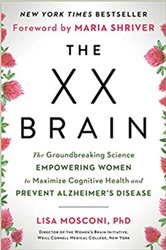
The Most IMPORTANT Book On Women's Brain Health

A Powerful Book
For Quality Relationships

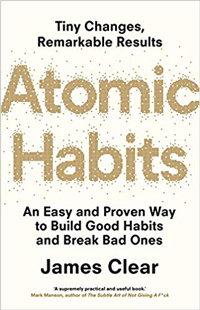
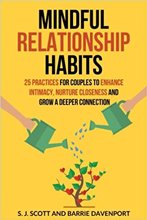
21 Day Primal
Blueprint
Body Transformation
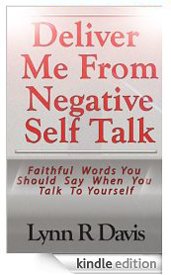
Deliver Me From Negative Self Talk

Best Course To Make Money On YouTube!

Treasured Lands:
A Photographic Odessey
Through America's
National Parks

Learn More About
Kindle Unlimited



